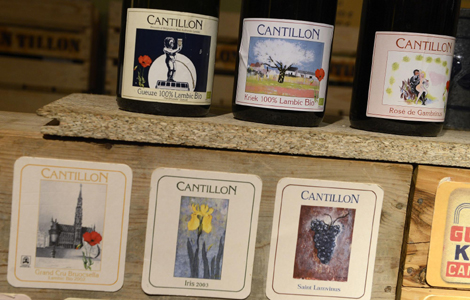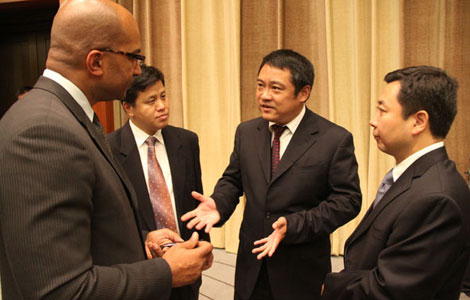Crusading reporter discusses 'organic' and seduction of fast food culture
Updated: 2011-11-21 10:06
By Pauline D. Loh (China Daily)
|
||||||||
Journalist Michael Pollan's interest in food grew after a couple of assignments on which he was sent to farms and feed lots. What he saw moved him so much that it changed his career direction. He started writing about food from a consumer's point of view, exploring the origins and then the safety of food.
Time magazine named Pollan one of those who most influence how we think, mostly through his books that tackled the food chain from very different perspectives.
Pollan's crusade to get Americans to eat better and more healthily started from his first book, the relatively abstract Botany of Desires, moving on to the thin but hard-hitting Food Rules, in which he sets out 64 rules for eating.
"There is a lot of Chinese wisdom in that book," Pollan tells me as we grab 10 minutes to talk at the National Center of the Performing Arts.
In a short speech at the US-China Forum on the Arts and Culture's opening ceremony on Thursday, Pollan said: "More and more Americans are eating from Chinese soil, and more and more Chinese are eating like Americans."
While the first may be good, the latter may not be.
I asked him to expand that bit about Americans eating from Chinese soil.
"Trader Joe's, for example. They sell a lot of organic produce from China. Many of the frozen vegetables we see are from China. Mostly organic, although there are questions as to how organic they really are.
"There are some consumers who avoid the products because of these concerns. There is beautiful organic food produced in China but there are also people using that word because of the export market."
It is not just a Chinese ploy, it seems.
"You know, in America, we had a phenomenon a few years ago when everything was 'natural' in the supermarket. And we had this new category - 'natural'. The government never defined the word and it got so diluted that it now has no value. The word has been cheapened.
"The same thing could happen to 'organic' in China unless the word is supported. If we use these words we have to mean it."
That's not the only problem China will face, says Pollan. There is also the seduction of fast food, such as KFC, McDonald's or even Starbucks.
"These foods are very popular and they are very seductive. They are carefully engineered to appeal to people. It's also very convenient. In America, it's very cheap but I gather it's not so cheap in China, but it will be.
"We have learned in America that this food is not very good for you. Populations that eat this kind of diet consistently get high rates of diabetes, obesity, heart disease and cancer.
"It saddens me to watch a country with as beautiful a food culture as China to find itself seduced by this way of eating. You have one of the world's great food cultures. It's great for many reasons but one is, it's based on eating plants, predominantly."
As Pollan explored food and stories about food, he realized that food links were expanding and they were including countries outside of the United States.
That prompted his more thorough exploration of food in China. It was a continuation of his theme about knowing more about the food he was eating, and where it was coming from.
We hope this will be the first of many journeys of exploration Pollan will take in China, and perhaps his next book will be on how China should feed itself.
Sometimes it takes a stranger on our shore to get a clear look at our problems and perhaps suggest a solution, or solutions.











